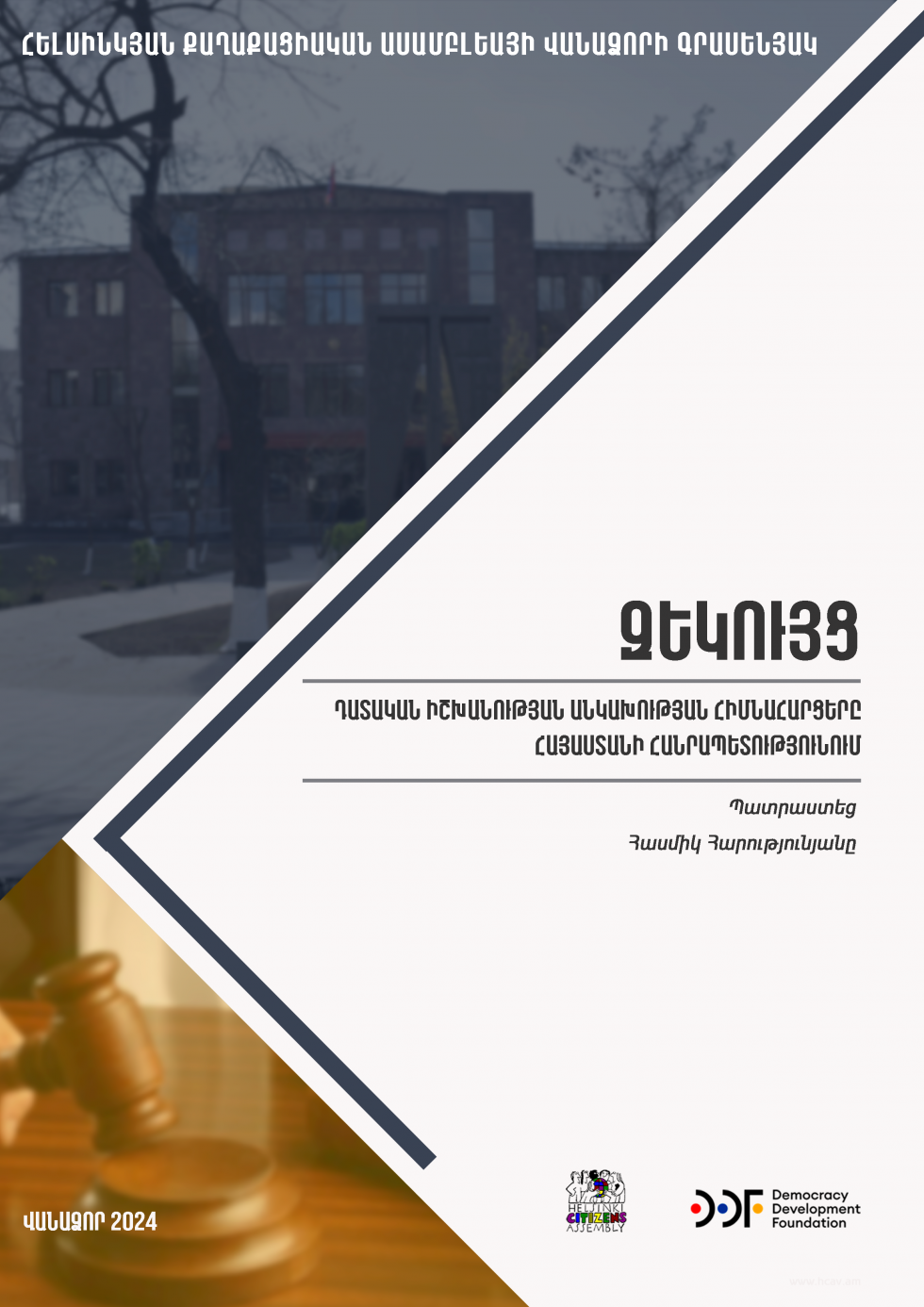The issue of judicial independence has been one of the most important issues of the Republic of Armenia since independence, and both legislative and practice change programs have been aimed at it for decades.
On October 10, 2019, the Government of the Republic of Armenia adopted a decision on approving the Strategy for Judicial and Legal Reforms for 2019-2023 and the resulting action plans.
The ultimate goal of the Strategy and the resulting action plans was the reconstruction of state institutions related to the courts and the justice system in accordance with the standards of independence and accountability, which is necessary for the development of a democratic state. According to the Strategy, the judicial system must become fully independent in order to become a balancing force in relations with other branches of government.
This study presents, on the one hand, the international standards necessary for the independence of the judiciary, and, on the other hand, the domestic regulations of the Republic of Armenia, with a comparative analysis. Taking into account the developments of recent years, special attention is paid to the role of the Supreme Judicial Council as a guarantor of ensuring the independence of the judiciary, the procedure for its formation and the main functions, in particular, the selection and appointment of judges, promotions, disciplinary liability and assessment of the activities of judges. The latter are the main components of the assessment of the independence of the judicial system, a detailed study of which is presented in the REPORT. Below we present our recommendations.
RECOMMENDATIONS
Composition and formation of the Supreme Judicial Council
Ensure a competitive, transparent and merit-based process for the nomination and election of non-judge members of the Supreme Judicial Council by the National Assembly.
Review the practice of electing non-judge members of the Supreme Judicial Council, excluding the election of representatives of the executive or legislative bodies, as well as candidates with political affiliations to the Council.
Clarify the requirements set by the National Assembly for non-judge candidate legal scholars in the composition of the Judicial Council: the main direction, field, period of work, as well as the requirements set for an authoritative lawyer and the objective criteria for its evaluation.
Selection and appointment of judges
Legislatively enshrine the requirement that decisions made by the Supreme Judicial Council regarding the selection and promotion of judges be reasoned, especially in the case of appointments with a negative conclusion.
Abolish the appointment and promotion of candidates for judges with a negative integrity assessment by the Supreme Judicial Council in the judicial system.
Legislatively provide for the requirement to make the final part of the integrity assessment conclusions made by the Corruption Prevention Commission public.
Disciplinary liability of judges
Abolish the practice of bodies authorized to initiate disciplinary proceedings against judges for “punitive” purposes or selectively.
Review the composition of the Commission on Ethics and Disciplinary Issues of Judges, providing for broad involvement of civil society in its composition.
Set clear requirements for professional activity for non-judge members, and provide for a mandatory requirement of political neutrality for the latter.
Provide by law that the General Assembly of Judges shall select members of the Commission on Ethics and Disciplinary Issues, both by selecting and rejecting a candidate, by adopting a reasoned decision. In order to avoid deadlocks, provide that in the event that a non-judge member is not selected by the General Assembly, the selection shall be carried out by the Supreme Judicial Council.
Ensure that any decision by the Supreme Judicial Council to subject judges to disciplinary liability contains full reasoning and justification regarding the type of disciplinary liability measure chosen.
Ensure that judges have the right to appeal against the decisions of the Supreme Judicial Council and implement the necessary effective mechanisms.
This study was carried out with the assistance of the Foundation for Democracy Development within the framework of the “Fair Judicial and Legal Reforms” program.

